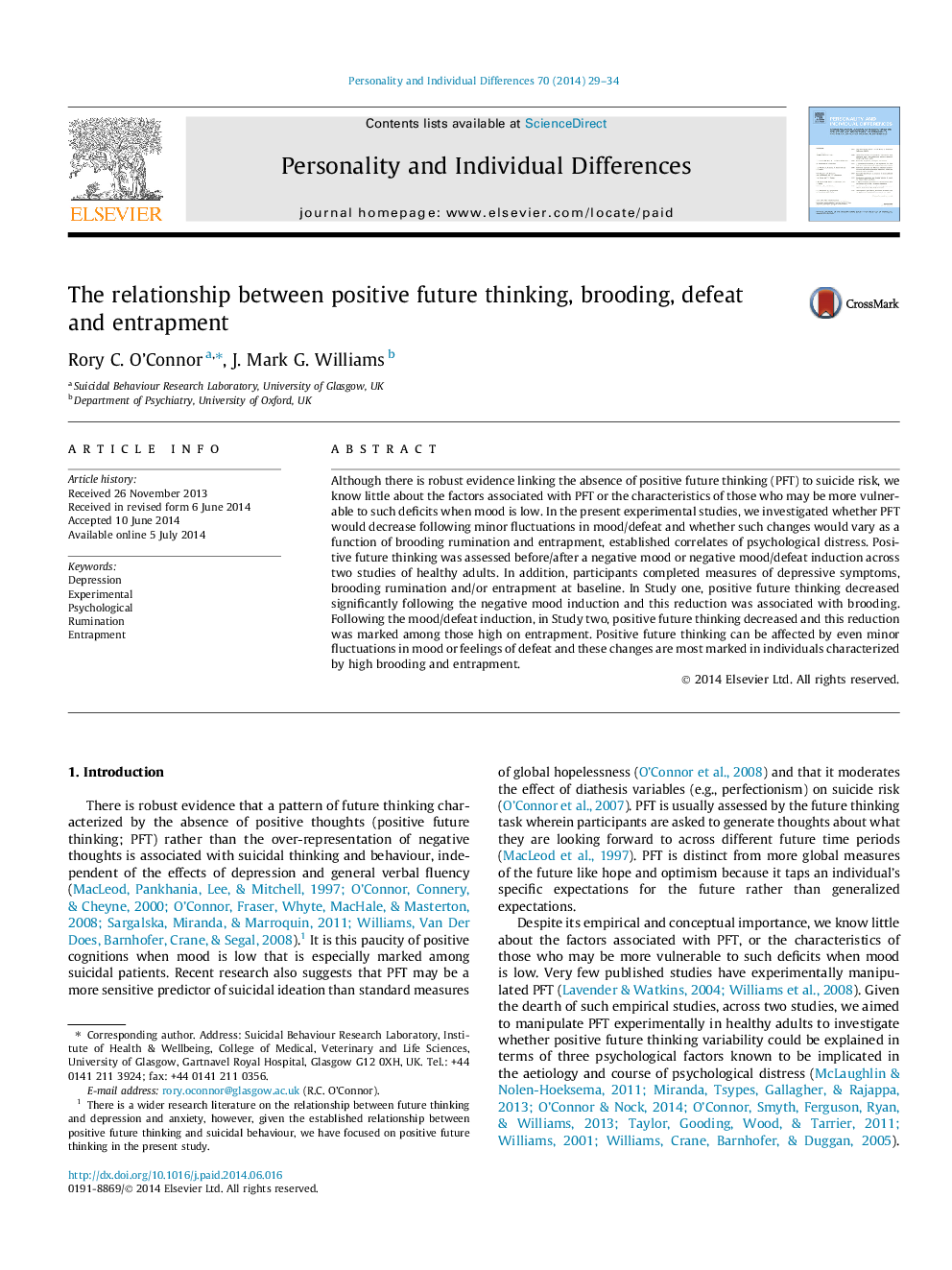| Article ID | Journal | Published Year | Pages | File Type |
|---|---|---|---|---|
| 890309 | Personality and Individual Differences | 2014 | 6 Pages |
•Positive future thinking (PFT) is an important component of cognitive functioning.•Impaired PFT is associated with depression, hopelessness and suicidal behaviour.•Few studies have manipulated PFT experimentally.•We examined changes in PFT pre-post experimental manipulations of mood and defeat.•Changes in PFT after manipulations are associated with brooding and entrapment.
Although there is robust evidence linking the absence of positive future thinking (PFT) to suicide risk, we know little about the factors associated with PFT or the characteristics of those who may be more vulnerable to such deficits when mood is low. In the present experimental studies, we investigated whether PFT would decrease following minor fluctuations in mood/defeat and whether such changes would vary as a function of brooding rumination and entrapment, established correlates of psychological distress. Positive future thinking was assessed before/after a negative mood or negative mood/defeat induction across two studies of healthy adults. In addition, participants completed measures of depressive symptoms, brooding rumination and/or entrapment at baseline. In Study one, positive future thinking decreased significantly following the negative mood induction and this reduction was associated with brooding. Following the mood/defeat induction, in Study two, positive future thinking decreased and this reduction was marked among those high on entrapment. Positive future thinking can be affected by even minor fluctuations in mood or feelings of defeat and these changes are most marked in individuals characterized by high brooding and entrapment.
